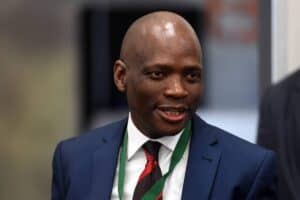The SABC said restructuring would save about R400m annually, and retrenchment notices have been issued to all staff.

A high wage bill – nearly half the SA Broadcasting Corporation (SABC) income, poor management and a skewed staff-manager ratio – are among key factors behind the corporation’s planned restructuring, expected to lead to the retrenchment of hundreds of employees, according to Media Monitoring Africa (MMA) director William Bird.
Reacting to the SABC’s announcement this week that it was proceeding with the Section 189 process of the Labour Relations Act to retrench close to 1,000 staff – a move it maintains will yield a cost saving of about R400 million annually – Bird said the change could not be averted.
“But it should be emphasised that for the changes at the SABC to be significant, they should be done in a transparent manner and be in the public interest,” said Bird.
The retrenchment notice informing employees of the SABC’s intention to downsize has already been issued to all staff, with the public broadcaster saying it plans to halve the number of freelancers it uses from 2,400 to 1,200.
In terms of an agreement reached earlier this month between labour and the SABC, the Commission for Conciliation, Mediation and Arbitration (CCMA) has been appointed to become the facilitator of the consultation process.
“We appreciate that the SABC board is seemingly handling this matter in line with the law – taking into account parliamentary and public protector recommendations.
“It is critical that the restructuring should reflect accountability, with those appointed illegally being made to account. The changes are long overdue.
“This is an institution that – for the past five years – has been left to be in a perpetual crisis for political reasons. It has been an unsustainable entity,” Bird said.
Government, said Bird, found it easy to grant SAA a R5 billion bailout and “failed to give the SABC a guarantee, which, if it shuts down, will bring South Africa into a crisis”.
“Whose interests does it serve when the SABC is teetering on the brink of collapse?” he asked.
In its response to the SABC restructuring, Communication Workers’ Union (CWU) general secretary Aubrey Tshabalala said he was “shocked by the announcement”.
Tshabalala: “Weeks ago, we had a meeting with SABC management and they failed to present us with numbers in terms of how many departments will be affected.
“We wanted them to also share with us their turnaround strategy, open the books so that we can point to wasteful expenditure and cut unnecessary spending.
“What is clear is that digital migration will need more workers who have to be reskilled and we cannot see the rationale for cutting.”
Tshabalala said the SABC’s funding model did not address current financial challenges.
“Reliance on licensing has proven not to bring enough revenue,” he said.
The financial crisis in which the SABC finds itself can also be traced back to the tenure of its former chief operating officer Hlaudi Motsoeneng.
The corporation had to fork out R22 million to defend Motsoeneng in court during his reign.
In a parliamentary reply to Democratic Alliance MP Thomas Hadebe in March, then communications minister Mmamoloko Kubayi-Ngubane revealed that Motsoeneng was a respondent in no fewer than 15 different cases in the 2013/14 financial year.
His legal battle against the DA over the public protector’s report into governance failures at the public broadcaster – “When Governance and Ethics Fail”– led to the SABC footing Motsoeneng’s legal bill of R5.3 million.
Other spending included R4.9 million in litigation on “various SABC board matters”, R1.6 million against the Helen Suzman Foundation and R1.1 million in a case against journalist Vuyo Mvoko.
Former SABC board member Krish Naidoo earlier this year testified before the CCMA that Motsoeneng’s unilateral implementation of the 90% on-air local music content led to the loss of R300 million in advertising revenue.
For more news your way, download The Citizen’s app for iOS and Android.






